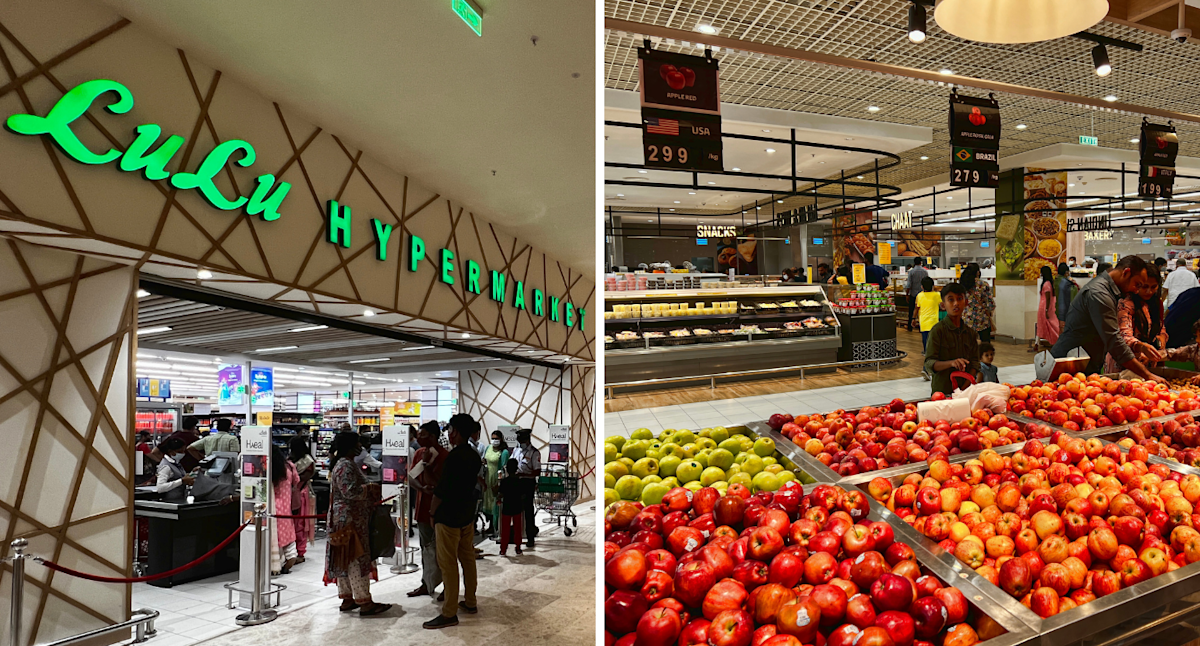Prime Minister Anthony Albanese has invited LuLu Hypermarket to expand to Australia to increase competition in the supermarket sector. (Source: Getty)
Aussies could soon be seeing a new face enter the $120 billion supermarket sector. Middle Eastern grocery giant LuLu Hypermarket has been invited by Prime Minister Anthony Albanese to set up shop down under and challenge the effective duopoly of Coles and Woolworths.
LuLu Hypermarket is one of the biggest retail chains in the Middle East and boasts more than 250 outlets across the Gulf states. LuLu already sells Australian products in its stores, including Tim Tams, Shapes and beef, with some beef products sold at a lower rate compared with some Aussie stores.
Consumer expert Nitika Garg from the University of New South Wales told Yahoo Finance the introduction of more competition into the sector would be a good thing for consumers and their wallets.
RELATED
“While the ACCC was stopped short of saying this is a duopoly, they did say this is an oligopoly, which means that there are very few players and mainly Coles and Woolies control what happens in the market,” Garg said.
“While they are not price gouging, their profit margins are increasing and the profit margins on individual products are increasing.
“The only reasonable, non-dictatorial way of addressing this is competition. So anything that can increase competition … sort of automatically, organically, leads to a reduction in these margins and better prices for consumers.”
Consumer expert Nitika Garg said more competition would lead to lower prices for consumers. (Source: Supplied/AAP)
Garg said LuLu may face issues entering the Australian market due to “land banking”, where supermarkets strategically purchase sites to prevent competitors from setting up shop.
The ACCC previously found 165 blocks of land were potentially being hoarded by the major supermarkets, with two-thirds held by Woolworths, 42 by Coles and 13 by Aldi.
Both Woolworths and Coles have denied accusations of land banking.
“If the viable areas are already taken up, then the new players obviously have a harder time,” Garg said.
“With LuLu, one of the advantages is they are as huge as they are. So if they decide to enter, they have this experience across multinational markets and different countries, so they have that, they have the capital.
“If the government truly wants to encourage competition, then they will help with these from the regulatory perspective.”
The government has promised further action to boost competition.
It has begun consulting with states and territories to rewrite zoning and planning laws to open up more sites for new stores.
Story Continues
It noted current laws were “acting as a barrier to competition” and potentially allowed land banking.
Albanese visited a LuLu Hypermarket store in Abu Dhabi on Monday, ahead of an Australian-United Arab Emirates trade deal commencing on Wednesday.
Albanese confirmed he extended an invitation to LuLu Hypermarket chairman Yusuff Ali to come to Australia.
“I want to see more competition. That’s one of the things that it can bring. This is a significant company. They are the largest throughout the Middle East,” he said.
“We know that Aldi, of course, have come to Australia, but this is a significant player that has an engagement with Australia. And, of course, I want to see that competition.”
Albanese noted the company was big enough to have direct relations to producers, “whether they be mango producers, the orange producers, the meat producers that the chairman met in Mudgee that are still providing Halal-certified meat into this market”.
The tariff agreement means 99 per cent of Australian exports into the UAE will be tariff-free.
The Australian supermarket sector has been under intense scrutiny as Aussies face cost-of-living pressures.
In March, an ACCC review found there was “limited incentive” for Coles and Woolworths to compete on price because of their market dominance. However, it found no clear evidence of price gouging.
Woolworths is estimated to control 38 per cent of supermarket sales nationally, while Coles has 29 per cent and Aldi 9 per cent. Metcash, which is behind IGA, has 7 per cent.
Other grocers have attempted to enter Australia, including Germany’s Kaufland chain, which abandoned expansion plans in 2020 after reportedly investing as much as $500 million.
Germany chain Kaufland abandoned plans to enter Australia in 2020, while other chains like Lidl are yet to come down under. (Source: Getty)
Deputy ACCC Commissioner Mick Keogh agreed more competition in the sector would benefit both consumers and suppliers, pointing to overseas examples where more choice has led to better prices, variety and quality.
He said Kaufland’s experience, while they withdrew, showed it was possible to locate and secure sites and there would be willing suppliers.
“The issue is the deep pockets to establish a distribution and retail network and then it invariably takes some time,” Keogh told ABC News Radio.
Garg said she didn’t expect there would be any “shocks” or “unexpected surprises” for new entrants in the market like LuLu.
“It’s more about the logistics. It’s more about getting supply chains in place,” she said.
“Woolies and Coles have a network, they have established suppliers and that makes it easier for them to work in our market.”
If LuLu does decide to expand to Australia, Garg noted there would likely be some “lag time” for them to do their research and due diligence.
“But if the government means it, then this would be a great step,” she said.
Get the latest Yahoo Finance news – follow us on Facebook, LinkedIn and Instagram.

